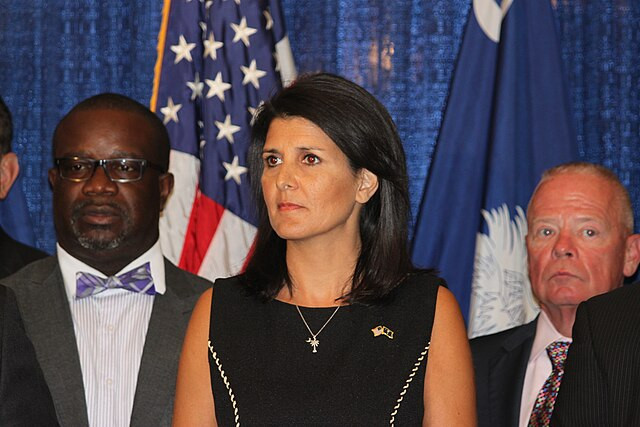Nikki Haley, the former South Carolina governor and 2024 Republican presidential candidate, found herself at the center of a political whirlwind this weekend. The controversy stemmed from her remarks suggesting the possibility of Texas seceding from the United States, a statement she later had to clarify amidst a barrage of criticism.
During an appearance on Charlamagne Tha God's "The Breakfast Club" radio show last week, Haley commented, "If that whole state says, 'We don't want to be part of America anymore,' I mean, that's their decision to make," igniting a firestorm of debate and concern over her interpretation of states' rights and the constitutional feasibility of secession.
The ensuing backlash prompted Haley to address her comments head-on during a subsequent appearance on CNN's "State of the Union." She unequivocally stated, "No. According to the Constitution, they can't," directly countering her earlier assertions about Texas's ability to secede. Haley added, "What I do think they have the right to do is have the power to protect themselves and do all that Texas has talked about seceding for a long time. The Constitution doesn't allow for that."
Haley's clarification aimed to reframe her initial remarks, emphasizing a broader discussion on states' rights and the autonomy of states like Texas, especially in contexts where they feel neglected or undermined by federal policies. She highlighted the current border crisis as a prime example, asserting, "Texans are frustrated, and rightfully so. Governor Abbott's frustrated, and rightfully so. When have you ever seen a president not support a governor when they're trying to keep their people safe?"
This isn't the first time Haley has navigated choppy waters regarding her public statements. In December, she faced a similar backlash when she failed to acknowledge slavery as the primary cause of the Civil War, a comment she later corrected, saying, "Of course the Civil War was about slavery. We know that. That's the easy part of it."
Despite the controversies, Haley's campaign has shown resilience, with her spokesperson Olivia Perez-Cubas reporting a substantial $16.5 million in new donations in January, marking the campaign's best fundraising month to date. This financial boost underscores the complexity of Haley's candidacy, intertwining her policy stances with the broader dynamics of the Republican primary race.
As Haley continues her campaign, the recent episodes highlight the intricate dance of political communication, where historical interpretation, constitutional principles, and contemporary issues converge, shaping the discourse of the 2024 presidential election.






